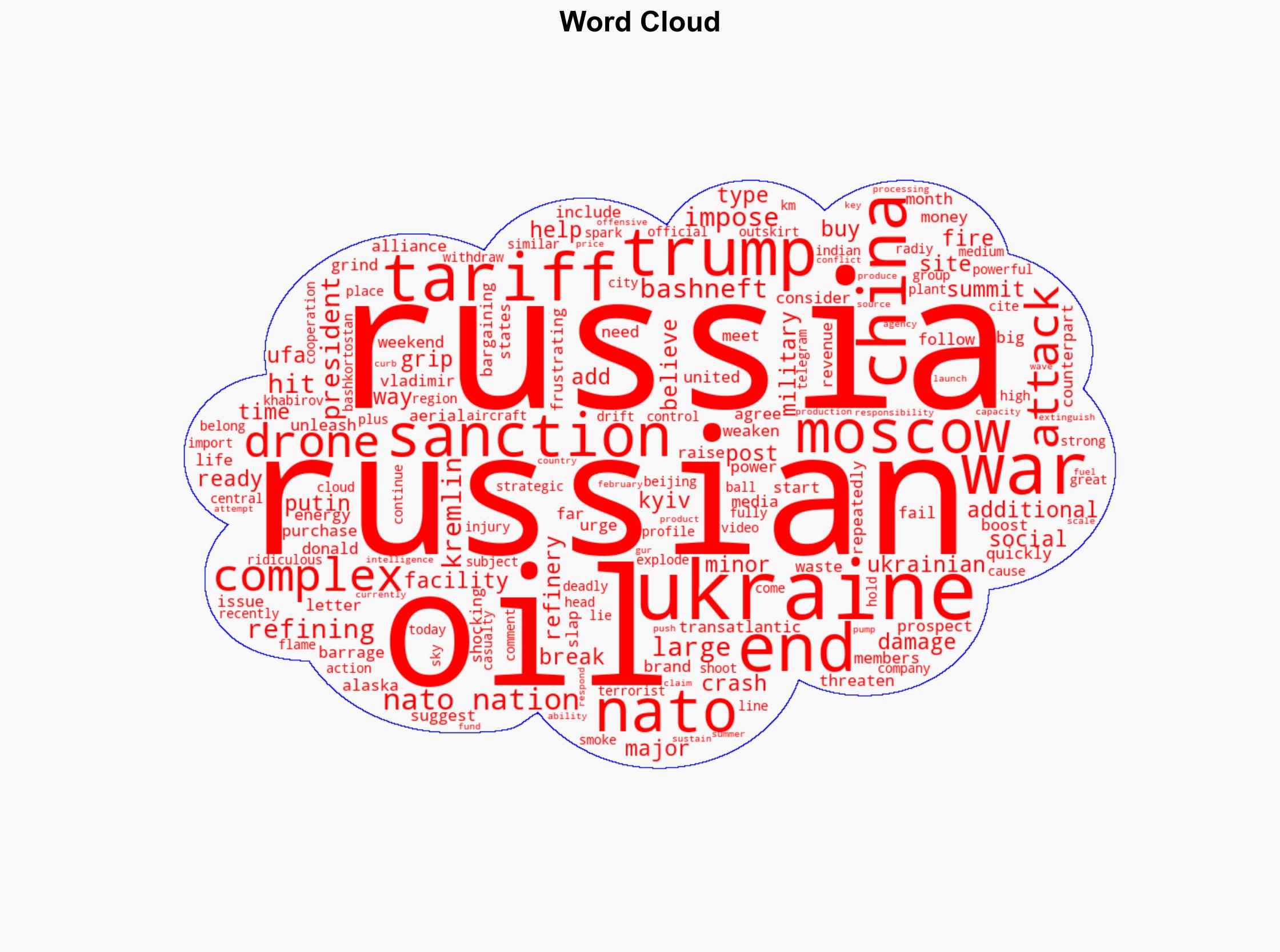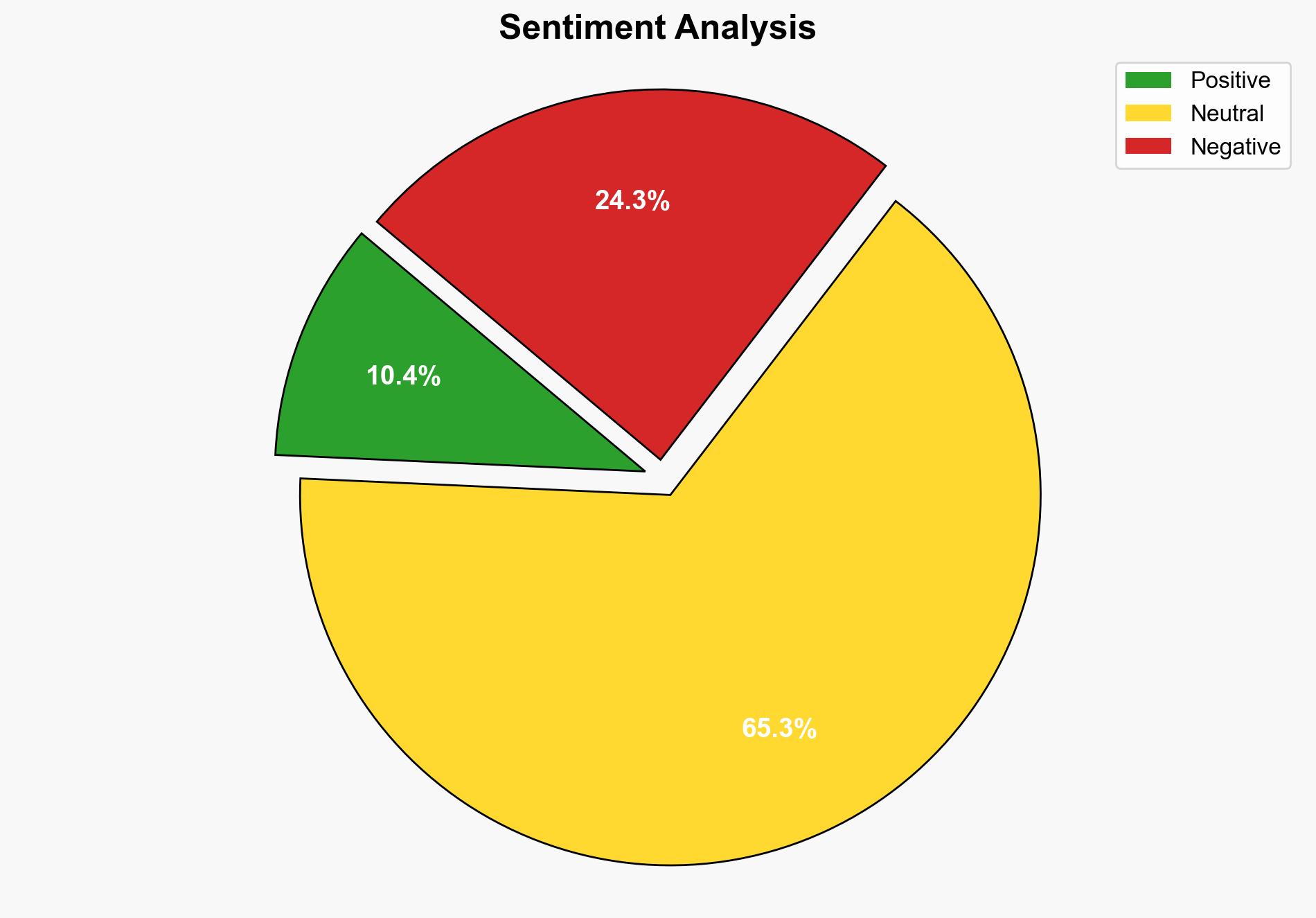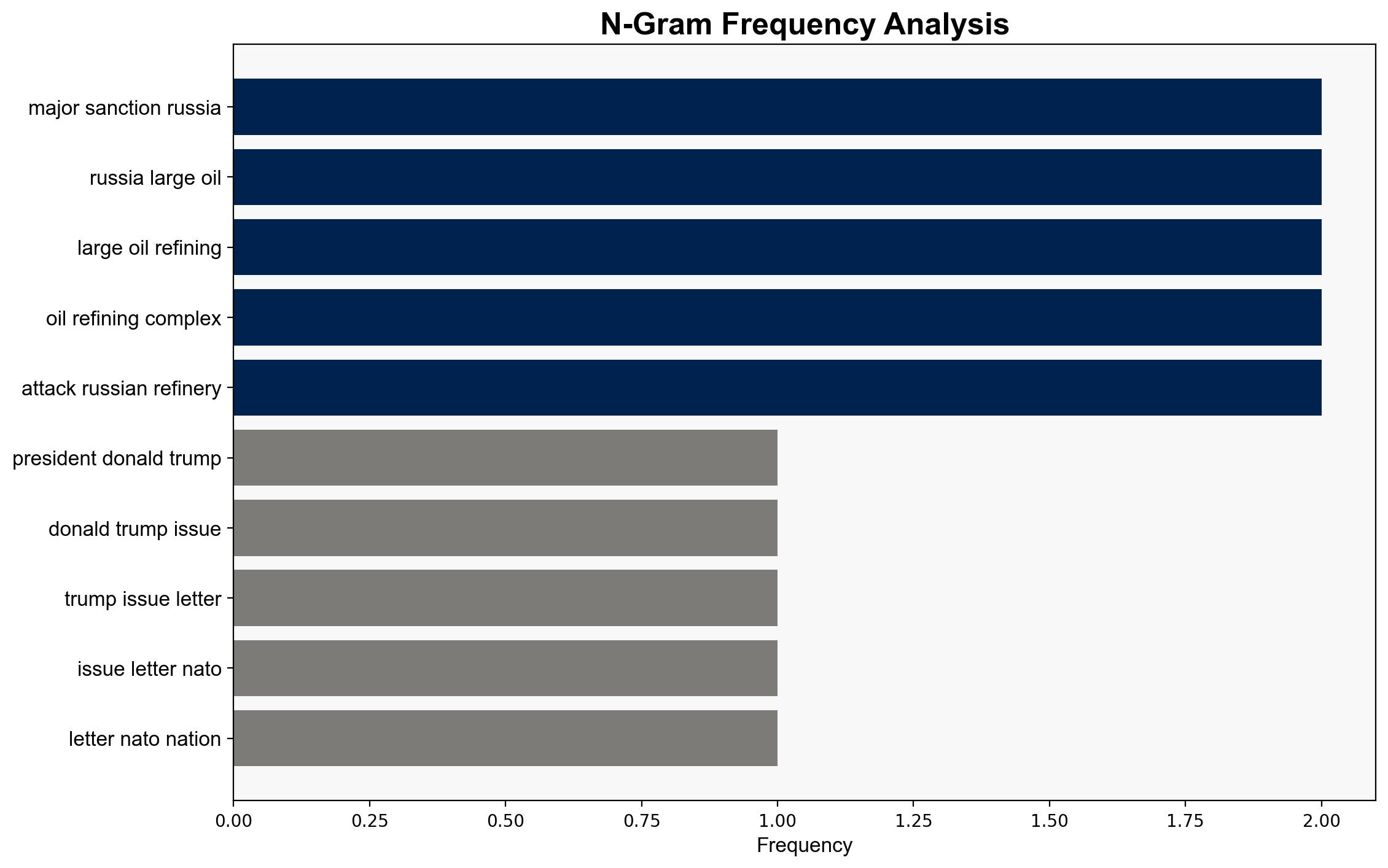Trump calls on NATO members to stop buying Russian oil – RTE
Published on: 2025-09-13
Intelligence Report: Trump calls on NATO members to stop buying Russian oil – RTE
1. BLUF (Bottom Line Up Front)
The most supported hypothesis suggests that Trump’s call for NATO members to stop buying Russian oil is primarily aimed at economically weakening Russia to expedite the end of the war in Ukraine. This aligns with his broader strategy of imposing sanctions and tariffs to exert pressure on adversarial nations. Confidence in this hypothesis is moderate, given the complexity of geopolitical dynamics and the potential for unintended consequences. It is recommended that NATO members conduct a thorough impact assessment before altering their energy procurement strategies.
2. Competing Hypotheses
1. **Hypothesis A**: Trump’s call is a strategic move to economically isolate Russia, thereby accelerating the end of the conflict in Ukraine. This involves leveraging economic sanctions and tariffs to reduce Russia’s revenue from oil exports, weakening its ability to sustain military operations.
2. **Hypothesis B**: The call is primarily a political maneuver aimed at strengthening Trump’s influence and leadership within NATO and on the global stage, rather than a genuine effort to end the conflict. This could be an attempt to rally NATO members around a common cause, enhancing his political capital.
Using ACH 2.0, Hypothesis A is better supported due to the alignment of Trump’s proposal with previous actions and statements regarding economic sanctions on Russia. Hypothesis B lacks direct evidence but remains plausible given the political context.
3. Key Assumptions and Red Flags
– **Assumptions**: It is assumed that reducing oil purchases from Russia will significantly impact its economy and military capabilities. Another assumption is that NATO members are willing and able to find alternative energy sources without severe economic repercussions.
– **Red Flags**: The feasibility of NATO members quickly transitioning away from Russian oil is uncertain. There is also a risk of retaliatory actions from Russia, which could escalate tensions.
– **Blind Spots**: The potential impact on global oil markets and the economic stability of NATO countries is not fully explored.
4. Implications and Strategic Risks
– **Economic**: A sudden shift away from Russian oil could lead to increased energy prices and economic instability within NATO countries.
– **Geopolitical**: Such actions could provoke retaliatory measures from Russia, potentially escalating the conflict.
– **Psychological**: The move could unify NATO members against a common adversary, but also risk fracturing alliances if economic impacts are severe.
5. Recommendations and Outlook
- Conduct a comprehensive analysis of alternative energy sources to mitigate economic risks.
- Engage in diplomatic efforts to prepare for potential Russian retaliation.
- Scenario Projections:
- Best Case: Successful economic pressure leads to a negotiated end to the conflict.
- Worst Case: Economic instability within NATO and retaliatory actions from Russia escalate the conflict.
- Most Likely: Gradual reduction in Russian oil purchases with mixed economic impacts and ongoing diplomatic tensions.
6. Key Individuals and Entities
– Donald Trump
– Vladimir Putin
– Bashneft (Russian oil company)
7. Thematic Tags
national security threats, economic sanctions, geopolitical strategy, energy security




